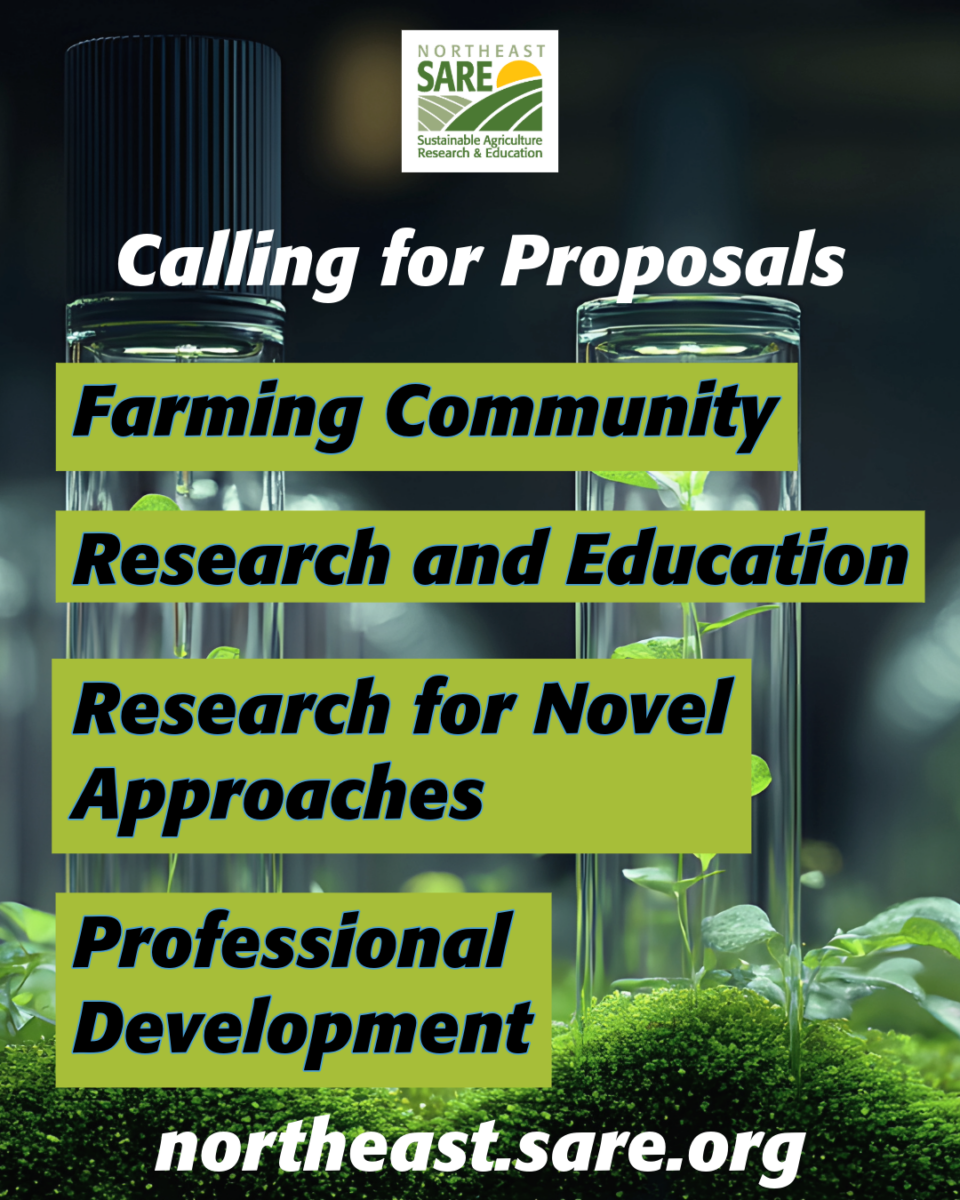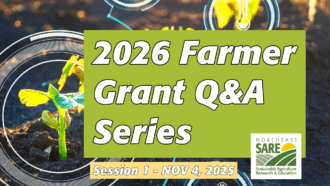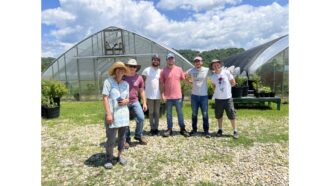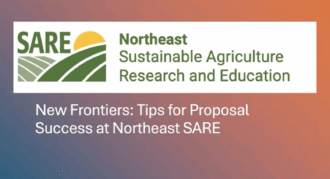Grants and Education to Advance Sustainable Agriculture and Food Systems in the Northeast
Sign up to receive updates on upcoming grant calls.Featured News & Resources

2026 Large Grant Question and Answer Sessions
Nearly seven million dollars in funding is now available for sustainable agriculture projects taking place in the Northeast beginning in 2026. Four Northeast SARE programs have released calls for proposals for projects beginning in 2026. The Farming Community, Professional Development, Research & Education, and Research for Novel Approaches Calls for Proposals have been updated for […]
OUR IMPACT
The Sustainable Agriculture Research and Education (SARE) program is a regional competitive grants and education program operating in every U.S. state and territory.
million
Question and Answer Sessions
Large Grant Programs
Northeast SARE staff will be hosting Q&A sessions on the four large grant programs: Farming Community, Professional Development, Research & Education, and Research for Novel Approaches. Registration is available at northeast.sare.org/LargeGrantQA where all session recording and questions will be posted.
Organizational Definitions
Legislative Priorities
All Northeast SARE grants must fit within one or more of SARE's Legislative Priorities that encourage research to increase knowledge concerning agricultural production. These priorities include:
● maintaining and enhancing the quality and productivity of the soil;
● conserving soil, water, energy, natural resources, and fish and wildlife habitat;
● maintaining and enhancing the quality of surface and ground water;
● protecting the health and safety of persons involved in the food and farm system;
● promoting the well-being of animals; and
● Increasing employment opportunities in agriculture.
Farmer Impact
Projects having a significant impact/impression on farmer's and farming communities is also critical. Impact can be economic, social, environmental etc. For example:
- How does the research support farmer/farming community livelihoods?
- How does the research build strong economies through local and/or regional trade?
- How does the research improve crop production?
For impact, replicability is important. Replicability is the ability of another farmer or farming community to obtain similar results when applying the same method (s). In other words, another farmer can utilize the results of the research to benefit their farming practices of behavior.
Outcome Statement
"Northeast agricultural communities honor the holistic connection among land, water, air, and all living beings. Agriculture in the Northeast is sustainable so that all farmers and farm employees can steward resources to ensure sustainability, resilience, economic viability, and a high quality of life."
Innovation
Innovation is defined as the development or adoption of new concepts or ideas and the successful exploration of new ideas. Ideation is the basis of creativity. The process of creative ideation develops new concepts; Innovation applies them. Creativity can only emerge when an innovator takes the idea and puts it into practice. Innovation can also be social and develop and implement novel and effective solutions to meet social and environmental challenges. The results should improve the welfare and well being of individual farmers and farming communities and reproducible. Within the scope of Northeast SARE, examples can include, but are not limited to:
● The introduction of a new behavior/practice, one with which farmers are not yet familiar
● The introduction of an improved or better agricultural behavior/practice, which may not be new, but is an improvement upon what occurred before.
● The opening of a new market that has not been entered previously, whether this market has existed previously.
● A new source of supply of materials or goods, again irrespective of whether this source already exists or whether it has first to be created.
● Improved organizational structure and/or capacity.
Northeast SARE encourages innovative solutions to challenges in farming and food systems in the Northeast USA, including but not limited to the areas of:
- Marketing and business
- Crop production
- Raising livestock
- Aquaculture
- Economic and social sustainability
- Ecological knowledge
- Projects related to climate and/or bioenergy work that provide direct or indirect benefits to farmers and ranchers
- And more.
Northeast SARE does not support:
- Educational programs for the general public
- Food donation efforts
- General public awareness campaigns about agriculture and nutrition
- Community or school gardening initiatives
Where We Work
Northeast SARE covers the Northeast and Mid-Atlantic states of Connecticut, Delaware, Maine, Massachusetts, Maryland, New Hampshire, New Jersey, New York, Pennsylvania, Rhode Island, West Virginia, Vermont, and Washington, D.C.
The opportunity to serve on the Administrative Council for Northeast SARE over the past six years has been an educational and rewarding experience. I am proud that the work SARE supports is helping to create innovative, responsible, and sustainable opportunities within agriculture.



